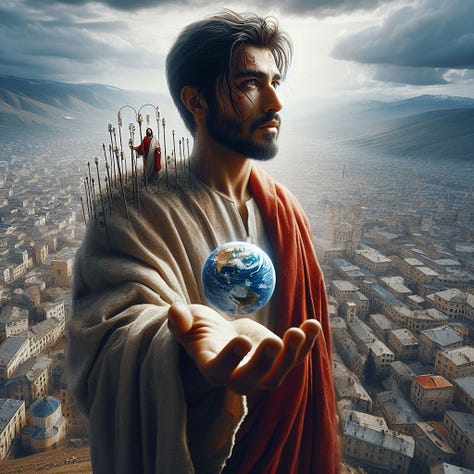Knowing from the Bottom
The Bible's alternative history, told from the perspective of the marginalized, provides a unique narrative that challenges the conventional winners' viewpoint, encouraging a more inclusive understanding of history and the divine.
The Gospels' portrayal of Jesus attracting the marginalized underscores the transformative power of embracing diverse perspectives, emphasizing the blessedness of those often overlooked. This calls for a crucial realization of the richness that different viewpoints bring to a fuller truth.
Liberation theology's call for a shift in priorities and detachment from entanglements with power and self-importance signifies an opportunity for Christianity to align with its roots, promoting justice and compassion for the marginalized.
Reading Scripture through the lens of vulnerability and the "preferential option for the poor" holds the promise of liberation and transformation. This shift in focus encourages a collective pursuit of growth and change, transcending the confines of maintaining the status quo.
The concept of "the bottom" or the "poor in Spirit" invites individuals to live with humility and openness, providing a unique vantage point for seeking personal growth and becoming instruments of transformation for the benefit of the world.
From the perspective of living close to the bottom, there is a profound opportunity for true security and resilience. Embracing this position allows individuals to contribute significantly to the collective journey of justice and compassion.
May the God of the oppressed and the marginalized Bless you with the courage to challenge the status quo and the wisdom to discern the truth from the lies.
May you embody the 'poor in Spirit' and become a source of hope and liberation for the world.
May you be filled with the Spirit of love and justice and be empowered to transform the world for the better.
In the rich fabric of time, marginalized whispers fade, history's dance, often unseen. Bible's alternative, a dance floor, where Jesus twirls with the shunned, a banquet for the disregarded. Liberation theology's silent waltz, neglected by Western hymns, sought to free from oppression's grip. Interpretations, a veil, draped by empowered clergy, shifting priorities, a dance of untangling. Scriptures read anew, through the lens of the poor, a dance of liberation, not oppression. Vulnerability's ballet, embraced for collective growth, being "poor in Spirit," a paradoxical grace. In this dance of perspectives, spiritual journey's sway, a shift from entangled religion. Prioritize justice, truth, universal rhythms, reinterpreting sacred steps.







